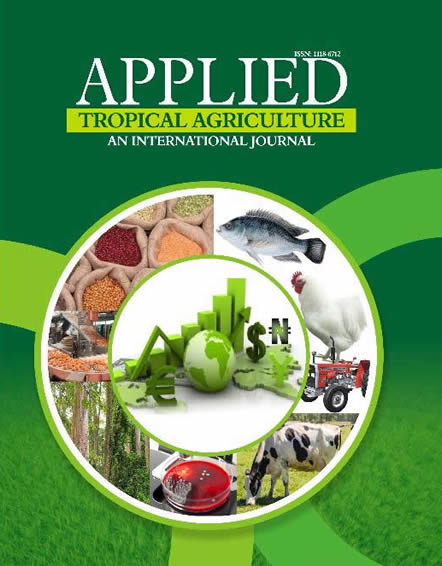No meaningful development will take place in an atmosphere of conflict and civil disturbances. Development can only be achieved in an atmosphere of peace and unity. This paper posits that resolution of conflict is the only panacea to grassroot development. A total of 300 rural farmers affected by conflict in the state were purposively selected. Data were elicited by use of questionnaire and analyzed descriptively using percentages, mean and standard deviation presented in tables. Results showed the following conflict resolution institutions; traditional rulers (M=2.90), town unions (M=2.52), council of elder (M= 2.37), women group/umuada (M=2.34), The conflict resolution strategies used included imposing a curfew on the area (M=2.23), settings up of judicial committee (M=2.74), traditional oath taking (M=2.40), mediation (M=2.00), dialogue (M=2.64). The above indicates that peaceful co-existence is a must for all which showed why there are institutions for peace making and the adoption of various strategies to ensure peace in the area. Conflict resolution can aid grassroot development in following ways: reduction of death of children (M=2.59), reduction in destruction of social/economic infrastructure (M=2.420), improves climate for rural investment (M=2.57), improves access to clean, safe water sources (M=2.34), reduction of death of family heads (M=2.64), reduces rate of unemployment (M=2.45) and promotion of local production exchanges (M= 2.34) among others. These are development indices which comes through collective efforts of the people, neglect of which would lead to disaster in the area. It is recommended that policies aimed at peaceful co-existence be put in place such policy will include proper land use planning since land is primary source of communal clashes in the rural area.
Key words: conflict resolution, grass-root development, Nigeria, Rural dwellers
PAPER TITLE :RURAL FARMERS’ PERCEPTION OF CONFLICT RESOLUTION AS A STRATEGIC TOOL FOR GRASSROOT DEVELOPMENT IN IMO STATE, NIGERIA
APPLIED TROPICAL AGRICULTURE | VOLUME 23 NUMBER 1 2018
Paper Details
- Author(s) : Chikaire, J.U., Onoh, P.A. Ugwoke, F.O. and Ejiogu-Okereke, E.N.
- Abstract:


